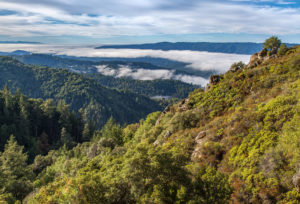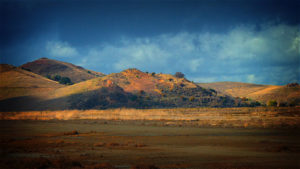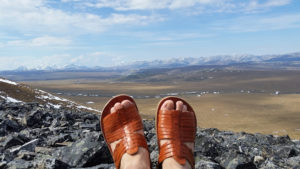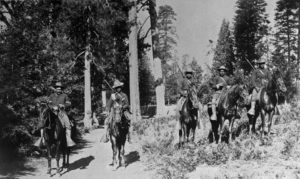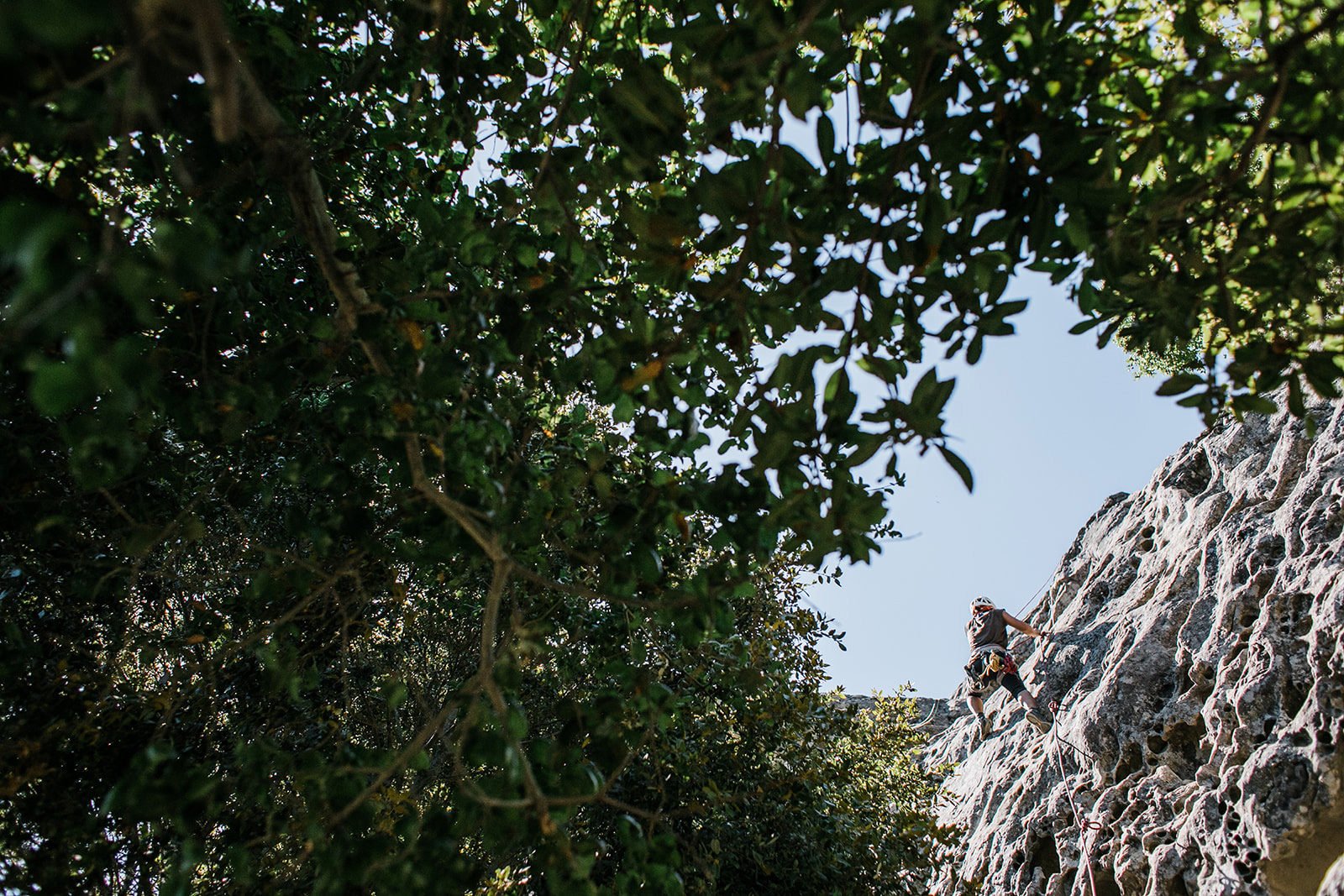
I am an outdoor educator, most often, a backpacking and rock climbing instructor. Whether it’s a week-long trip or a twenty-four day trip, I am most nervous meeting students for the first time. That is when I am most aware of potential judgments based on my being small, Khmer, and sometimes looking close in age to students though I might be older than some of their parents.
Do I look trustworthy? Do I seem competent? Am I perceived as relatable? In those first hours, I work to convey a mixture of confidence, humility, enthusiasm, and friendliness.
I’ve worked for a handful of different organizations, but the program with which I’ve been the closest is the Bay Area’s GirlVentures, where I began my journey in this field in 2014.
I know that the need I feel to prove myself is many-layered: I never went backpacking when I was most of my students’ age. I never went camping with another Khmer person until I walked the Skyline-to-Sea trail with friends in 2012. I didn’t have a single Khmer teacher growing up in Southern California, and barely a handful of Southeast Asian teachers.
As I work to comfort and encourage students to take on what might be intensely challenging experiences, such as carrying a heavy pack along a steep trail, or trusting a near-stranger to hold them safe on the side of a cliff, I am aware that I did not face these experiences myself as a youth. In some ways, it is because I didn’t grow up with those experiences that I have felt so compelled to continue on this outdoor educator path.
When I think about carrying everything that I need on my back, I think about the strangeness of doing something for recreation that uncomfortably resembles what my mother described to me throughout my childhood: how she first left Srok Khmer (Cambodia) on foot, with only as many belongings as she could carry. The Khmer Rouge regime, which came on the wake of the American War in Vietnam, meant that my parents knew all too well what it was like to experience the elements, to live outdoors, to subsist on carefully gathered and rationed meals.
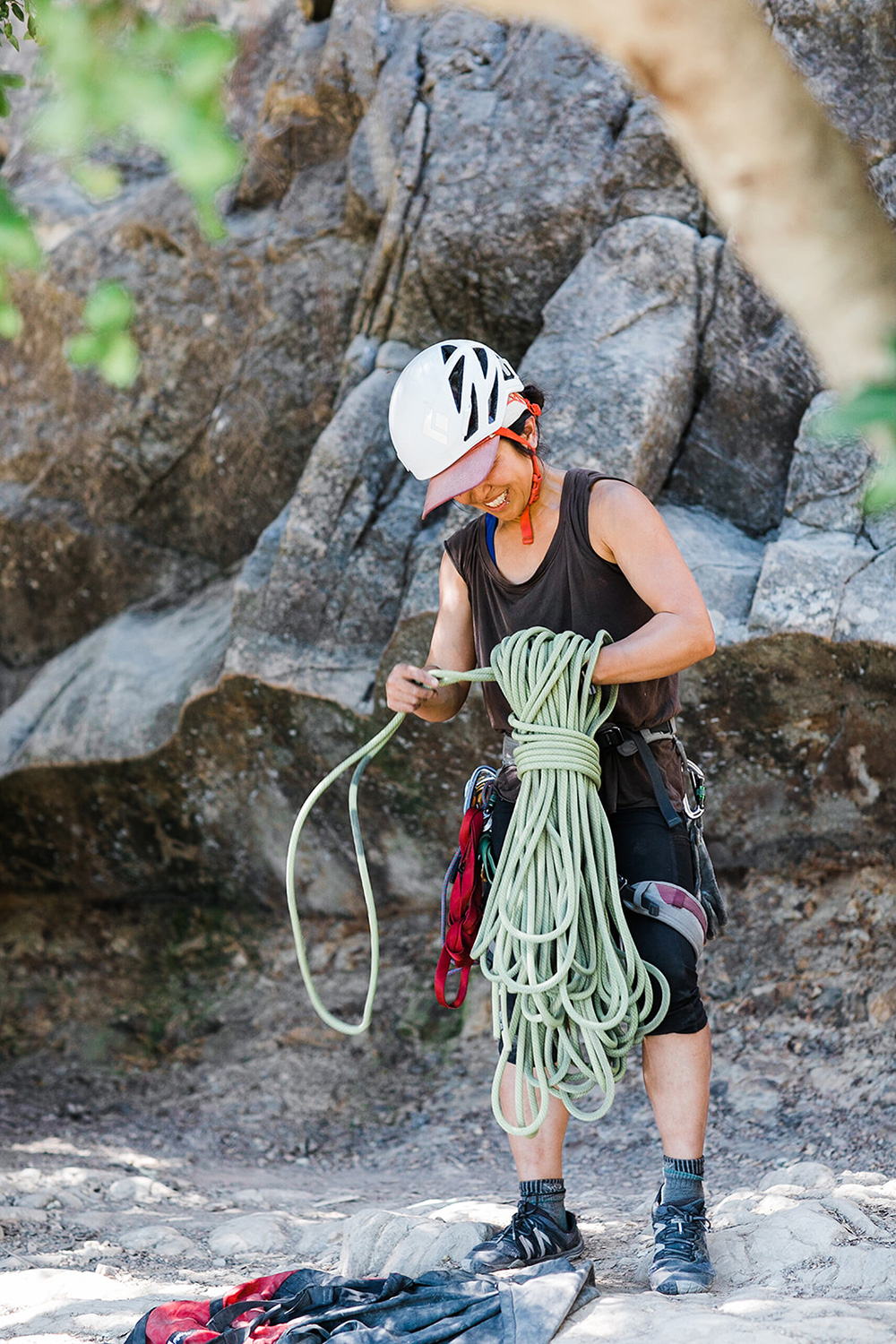
When I first began my journey as an outdoor educator, I felt a tension around this — that what I do for work and recreation is a parody of experiences my parents had actually lived.
Over the years, though, it has come to feel like a kind of healing. I recognize that my family and I have a short history on this land, and a fraught history with this government. I’ve come to see my work as an act toward healing the inherited trauma of war, and toward participating in further healing and solidarity across identities. I’ve come to experience this healing for myself, to paraphrase adrienne maree brown, as a way to also heal backward toward my ancestors and forward to those yet to come.
The lessons I learned from my family and from my time as an arts organizer in Los Angeles share a through-line with the outdoor trips I facilitate: interdependence.
I was not taught a “survival of the fittest” approach; I was taught to survive through collaboration, not competition. I was taught that relationship is powerful. I was taught that thriving is dependent on the strength of our relationships with one another.
We tend to focus on youth as the future — and they are. Which means they need adults of all ages to be there for them. I try hard to convey that we can take care of one another, that we can work to be ever more cognizant of our values, to feel what compromises and what bolsters them.
What does it mean to me to try to heal backward? It means that I can’t stop my mother’s story at what she has survived. That I can’t stop my own story at what I haven’t yet done. It means that since then, my mother has come to know a plot of land in this place so well (her yard), and buried hope in the form of seeds time and time again. My parents have welcomed its bounty and weathered its famine.
What does it mean for me, a petite Khmer American woman, to stand at the top of Goat Rock at Castle Rock State Park, on unceded Ohlone land, setting up climbing ropes in the wee hours of the morning, to make sure that a group of students get to have this experience of applying their bodies to the rock, of learning their strengths, of engaging with their fears in this sensate manner? To feel the sandstone against their hands, to feel the tug of their belay team keeping them safe and close to the wall. And to know that, if they find themselves unable to go on, that I would be the one to come up to them and guide them back to solid ground.
The strange thing about representation is that the absence of it pays dividends in further absence, in further omission of stories. How much sooner might I have been able to enter this profession or these activities had I seen a greater diversity of identities in them? How many voices and perspectives have we missed? How can I help ensure that they do not stay missing?
I bring my whole self to the experiences I facilitate. I bring my queerness, my Khmerness, my political perspective. I try hard to bring all of that in a way that allows others to also bring their whole selves, and allow us to feel wholeness as a group. In doing so, I hope we can further expand that sensation beyond our group, toward our communities. To gain intimacy with a stand of redwoods and with one another. To learn to deeply include others, human and non-human, in our thinking.
At the beginning of my career as an outdoor educator, I didn’t know this path was possible for me. I was bolstered by people who could envision me in these spaces– who wanted to see me there. I want to pay that forward. That desire, gratitude, and curiosity helps me push through those uncomfortable first-day feelings and toward what we possibilities we might uncover together.

